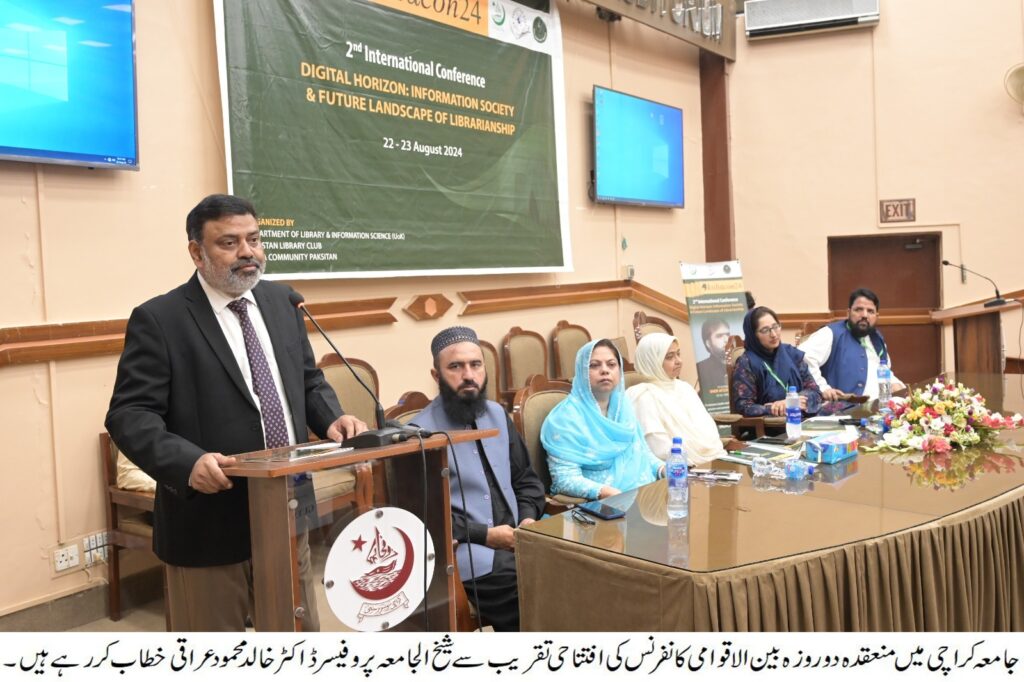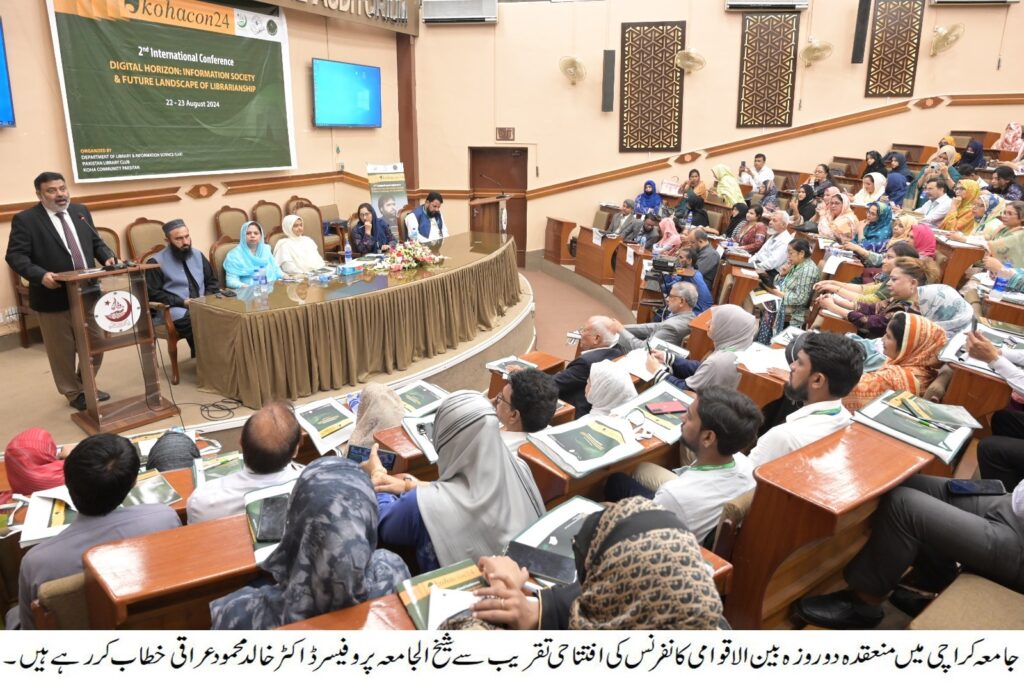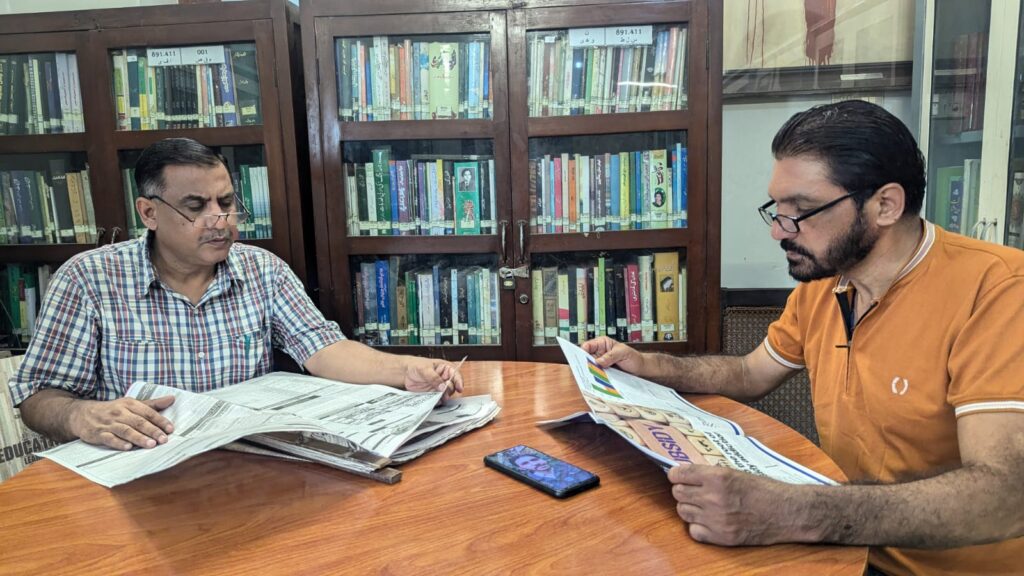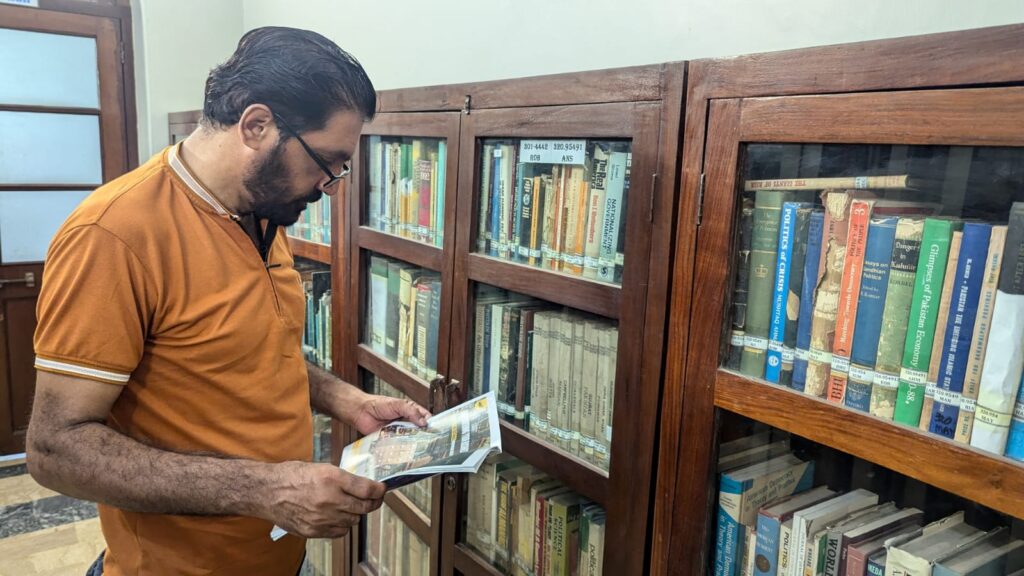digital libraries have evolved from being static
repositories of books to becoming dynamic
platforms for information exchange
Staff Reporter
Karachi: The Department of Library and Information Science at the University of Karachi, in collaboration with the Pakistan Library Club and Koha Community Pakistan, organized a two-day international conference titled “Digital Horizon: Information Society and Future Landscape of Librarianship.” The event brought together experts and scholars to discuss the evolving role of libraries in the digital era.

Inauguration by KU Vice Chancellor
The conference was inaugurated by KU Vice Chancellor Professor Dr. Khalid Mahmood Iraqi at the Chinese Memorial Teachers Auditorium. In his opening remarks, Dr. Iraqi highlighted the transformative impact of digital libraries on the information ecosystem. He emphasized that digital libraries have evolved from being static repositories of books to becoming dynamic platforms for information exchange and global awareness. However, he also pointed out the challenges that come with this transformation, including technical, financial, and environmental issues.
Dr. Iraqi stressed the importance of access to information in research and academic activities, noting that libraries play a crucial role in providing accurate and up-to-date knowledge. He also expressed concern over the lack of investment in education by authorities, which hampers the development of a knowledge-based society in Pakistan.

The Role of Libraries in Society
KU Dean of the Faculty of Arts and Social Sciences, Professor Dr. Shaista Tabassum, discussed the pivotal role libraries and books play in the development of nations. She lamented the declining library culture in society, noting that libraries are increasingly perceived as places only for the elderly, even though they are vital knowledge hubs for all age groups. Dr. Tabassum observed that digital libraries reflect a societal shift towards digital information consumption, with many people turning to the internet for news and entertainment.

Keynote Address on Digital Citizenship
Professor Dr. Nosheen Fatima Waraich, Director of the Institute of Information Management at the University of Punjab, Lahore, delivered the keynote address. She spoke about the integration of technology into the lives of 21st-century individuals, particularly students who have grown up with digital technologies. Dr. Waraich emphasized the need for guidance in teaching digital citizenship, which involves the responsible and ethical use of the internet and digital devices. She warned that while students may be adept at using technology, they often misuse it, engaging in activities like cheating or cyberbullying.
Dr. Waraich stressed that teaching digital citizenship goes beyond following rules; it is about ensuring that students think critically, behave safely, and participate responsibly in the digital world.

The Role of AI in Libraries
Renowned American librarian and consultant Loida Garcia-Febo joined the conference virtually to discuss the role of artificial intelligence (AI) in libraries. She suggested that AI could enhance library services by improving cataloging, search functions, and personalizing user experiences while maintaining ethical standards. Garcia-Febo also highlighted the potential for libraries to advocate for the responsible use of AI and to educate users about its benefits and risks.

Conclusion and Future Discussions
KU Chairperson of the Department of Library and Information Science, Dr. Rafat Parveen Siddiqui, concluded the first day’s session by reinforcing the idea that libraries are more than just book repositories—they are centers of knowledge, learning, and community engagement. The conference will continue with further presentations and discussions by local and international speakers on the second day.






















